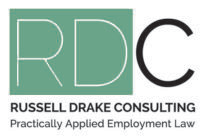Have you ever faced the dilemma as to whether an employee is raising a complaint or raising a personal grievance? There may be a fine line between the two, however the implications of determining what the employees’ intentions are can result in significantly different outcomes.
The Employment Relations Act 2000, specifically s114, outlines that an employee wishing to raise a personal grievance must do so within 90 days of the event that gives rise to the grievance occurring, with s114(2) stating that the employee must make, or has taken reasonable steps to make the employee or a representative of the employer aware that the employee alleges a personal grievance that the employee wants the employer to address.
The principles that sit behind this legislation confirm that a personal grievance may be raised orally or in writing, and there is no particular formulation of words that must be used. The test as to whether the communication constitutes a personal grievance is “whether, to an objective observer the communication was sufficient to elicit a response from the employer” – a response in this case being that the employer is now required to implement some form of action to resolve the concerns of the employee.
Really, this sounds no different to if the employee had raised a formal complaint, as in receiving that complaint, the employer is duty bound to do something to investigate and resolve the matter.
This dilemma was recently put to the Employment Relations Authority in a Preliminary Determination Michael Ross and Concentrix Services (New Zealand) Limited [2023] NZERA 129.
Mr Ross was employed by Concentrix and had raised concerns for sexual harassment, and health and safety matters with the company then commencing a ‘fact finding’ interview into the allegations. Mr Ross was not however satisfied with the company’s response stating that ‘he received only obstructions, denials and shutdowns.’
Approximately two months later Mr Ross sent a text message to the Team Lead Manager advising that “I’m resigning, I won’t work for a company that doesn’t respect its employees”…… as well as making comments about how the company had broken his trust and how the emotional stress had forced him to now resign from his employment.
Mr Ross believed he had legitimately raised a personal grievance for unjustified disadvantage and constructive dismissal. Concentrix, however, disagreed with this claim with it then being left up to the Authority to determine whether the text met the criteria of being defined as a personal grievance.
In reviewing the evidence, the Authority concluded that the text message did not satisfy the criteria for raising a personal grievance for unjustified disadvantage as it did not provide sufficient detail to explain what the disadvantage was that he believed that he had suffered, and how he sought to have the company resolve these concerns. This claim was therefore seen to be more of a complaint about the company’s lack of action with respect to the concerns he had previously raised. By the time Mr Ross elaborated further on his disadvantage claims, the statutory period of 90 days to raise a personal grievance had expired and therefore he was precluded from raising a personal grievance for unjustified disadvantage.
However, with respect to the constructive dismissal claim, the Authority concluded that the text message did however contain reference to breaches of confidentiality, breaches of assurances that had been made to him, and although it did not specify what he wanted Concentrix to do about these concerns, it however did meet the criteria of having taken steps to advise the employer that he had a grievance.
Specifically, the Authority noted that the text message conveyed to Concentrix that their actions had ‘forced him to resign’, and that this in itself was enough to establish, pursuant to s114(2) of the Act, that Mr Ross wanted Concentrix to address this issue.
Mr Ross was therefore entitled to pursue his claims of Constructive Dismissal but was prohibited from furthering his claims of Unjustified Disadvantage.
This case demonstrates the very fine line that may exist between a ‘complaint’ and a ‘grievance’ and highlights the fact that; where an employer receives a notification (which may be made verbally or in writing) they have an obligation to treat this seriously and to put in place some form of action to seek to resolve the concerns.
The first step of which may be seeking professional advice on what risk and liability does the employer have, and what should they now be doing in response to the notification.
If you encounter a situation like this that leaves you uncertain as to whether you are dealing with a complaint or a grievance and are uncertain as to how you should address the situation, please feel free to give us a call to seek guidance on the correct steps required.

